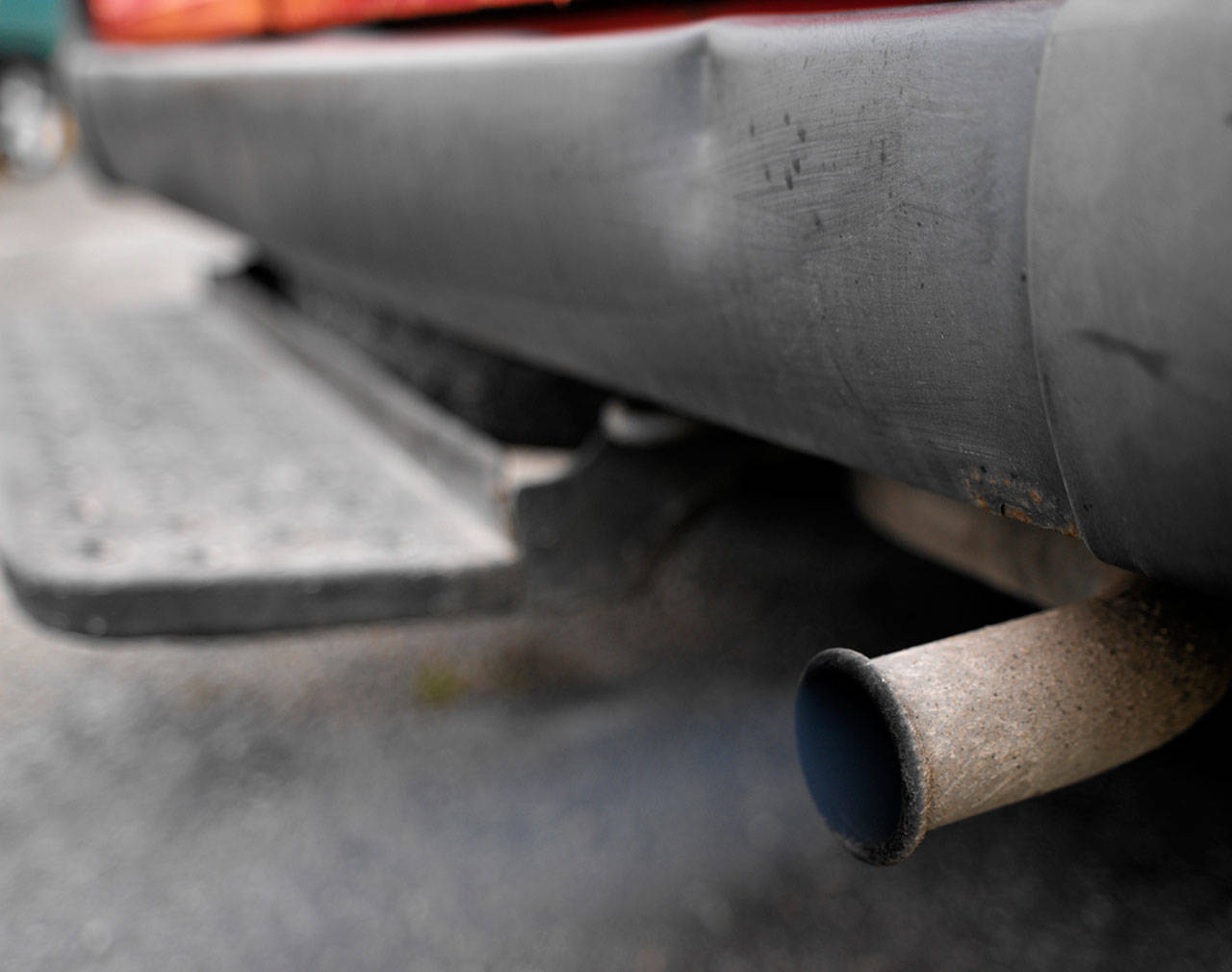By The Herald Editorial Board
Just one week into the 2020 legislative session, the state Supreme Court has added to state lawmakers’ to-do list for an already brief 60-day session.
Even before the court decision, legislators had bills before them — some held over from last year — addressing efforts to limit and begin cutting the greenhouse gas emissions causing climate change. But a decision Thursday from the court severely curtails the authority of the state Department of Ecology to set rules for carbon emissions — especially from the transportation sector that is the leading source of that pollution — and now puts the responsibility and urgency on the state Legislature.
The decision was close, 5-4, with the majority finding that the state’s Clean Air Rule did not explicitly give the agency the authority to limit emissions from indirect sources. The rule’s limits, the majority held, could not be applied to companies that sell or distribute petroleum or natural gas because they do not directly control those emissions; the motorists, homeowners and others who purchase fossil fuels do. The state agency only has the authority to regulate “actual emitters.”
It’s a narrow interpretation of statute and precedent, which the minority pointed to in Justice Susan Owen’s dissent: “We have historically found that when passing laws that protect Washington’s environmental interests, the Legislature intended those laws to be broadly construed [emphasis hers] to achieve the statute’s goals,” she wrote.
The majority’s opinion, however, carried the day. But that shouldn’t be interpreted as refuting what the Clean Air Rule sought.
“The issue is not whether man-made climate change is real — it is,” Justice Debra Stephens wrote for the majority. “Nor is the issue whether dramatic steps are needed to curb the worst effects of climate change — they are.”
In her conclusion, Stephens was direct about what should come next: “We are confident that if the State of Washington wishes to expand the definition of emission standards to encompass ‘indirect emitters,’ the Legislature will say so.”
State lawmakers should now say so.
Gov. Jay Inslee and several environmental groups repeated Stephens’ call, hours after the decision was announced. “Washingtonians can rightfully expect their elected officials to take today’s news as higher motivation to act substantively against climate change in 2020,” Inslee said in a statement.
Even before the court’s decision, the state Senate moved forward with one bill in a slate of carbon legislation, passing Senate Bill 5811, 26-23, which would enable the state to join California and 10 other states in the national Zero Emission Vehicle program, which is intended to increase the selection of electric vehicles in those states while easing the cost to purchase them. If adopted, by 2022, electric vehicles would have to make up 6 percent of the cars and light- and medium-duty trucks offered at dealerships. Automakers that don’t meet the threshold could buy credits from others, or pay a penalty.
The same bill passed the Senate last year, but stalled in the House.
Another bill addressing electric vehicles, House Bill 2515, would require that all passenger and light-duty trucks of model year 2030 and after sold in the state be electric vehicles. The bill has been referred to the House Transportation Committee.
The most significant piece of legislation, however, seeks to address what the Department of Ecology now can’t: carbon emissions from vehicles.
House Bill 1110, which passed the House last session before failing to advance to the Senate floor last year, would establish a Clean Fuels Standard for the state.
The legislation would require a reduction in greenhouse gases from gas and diesel fuels, 10 percent below 2017 levels by 2028 and 20 percent by 2035. The program would establish a trading system where deficits for carbon-intensive petroleum fuels could be offset by a range of less-polluting fuels such as ethanol, bio-diesel, even used cooking oil that can be blended into petroleum fuels; hydrogen for fuel cells; and the promotion of electric vehicles and development of the roadside charging infrastructure to power them.
The legislation is opposed by the oil industry and the Association of Washington Business, the same groups that opposed Initiative 1631, which sought to place a fee on carbon emissions, and that brought the challenge against the state’s Clean Air Rule.
Those who oppose putting a price on carbon have attempted to scare away support by warning of increases in the price of fossil fuels. The No on 1631 campaign predicted that the initiative would increase the cost of a gallon of gas by 14 cents. But the experience of California, Oregon and British Columbia, each of which have a similar low-carbon fuel standard, shows more modest increases. One estimate put the increase in Oregon, since 2015, at 2.2 cents a gallon; for California, the maximum increase was estimated at 8.9 cents a gallon, according to an analysis last year by Crosscut.
And the latest Crosscut/Elway poll has found ample support for such legislation. Asked about legislation that would require makers of gasoline and other fuels to reduce carbon emissions, 66 percent of the registered voters polled said they were in favor; 24 percent were opposed, a 42-point gap.
We are past the point where a few additional cents per gallon — whether its 2, 14 or more — should keep us from solutions to the carbon emissions that are driving climate change and its billions of dollars in economic impacts. The federal government’s own National Climate Assessment, released in 2018, estimates that the annual costs resulting from the impacts of climate change — including response to more frequent and more severe natural disasters — could soon total more than $100 billion a year.
When the Supreme Court ruled that the costs of addressing carbon emissions should be borne by those directly responsible for them, the justices — unanimously — meant us.
Talk to us
> Give us your news tips.
> Send us a letter to the editor.
> More Herald contact information.

























